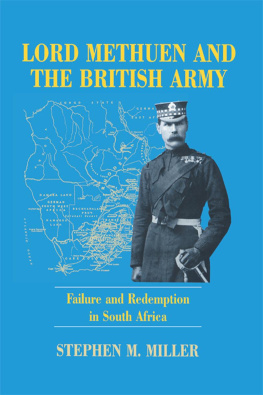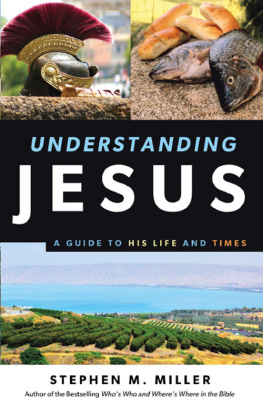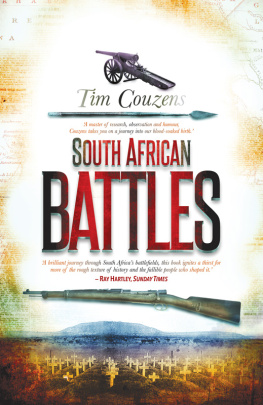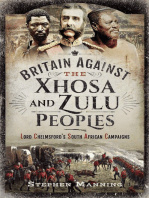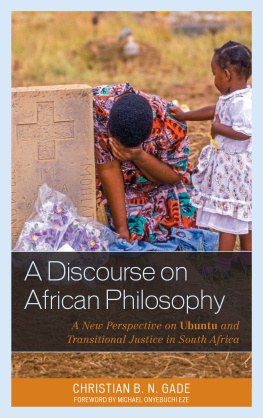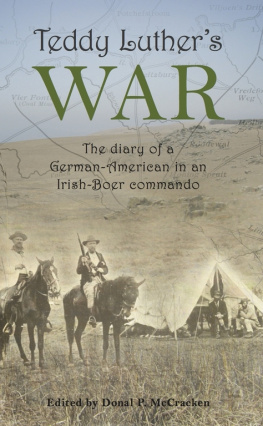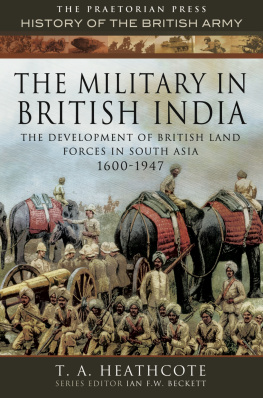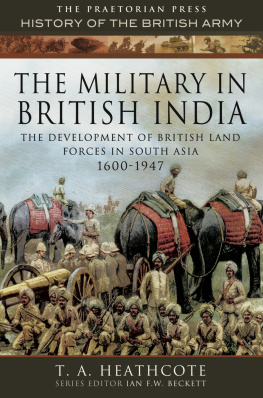LORD METHUEN
AND THE
BRITISH ARMY
LORD METHUEN
AND THE
BRITISH ARMY
Failure and Redemption in South Africa
STEPHEN M. MILLER
University of Rhode Island
FRANK CASS
LONDON PORTLAND, OR
First published in 1999 in Great Britain by
FRANK CASS PUBLISHERS
2 Park Square, Milton Park, Abingdon,
Oxon, OX14 4RN
and in the United States of America by
FRANK CASS PUBLISHERS
270 Madison Ave,
New York NY 10016
Transferred to Digital Printing 2005
Website http://www.frankcass.com
Copyright 1999 Stephen M. Miller
British Library Cataloguing in Publication Data:
Miller, Stephen M.
Lord Methuen and the British Army : failure and redemption in South Africa
1. Sanford, Paul 2. South African War, 18991902
I. Title
968.048
ISBN 0-7146-4904-X (cloth)
ISBN 0-7146-4460-9 (paper)
Library of Congress Cataloging-in-Publication Data:
Miller, Stephen M., 1964
Lord Methuen and the British army : failure and redemption in
South Africa / Stephen M. Miller.
p. cm.
Includes bibliographical references and index.
ISBN 0-7146-4904-X. ISBN 0-7146-4460-9 (pbk.)
1. Methuen, Paul Sanford Methuen, Baron, 18451932Military
leadership. 2. MarshalsGreat BritainBiography. 3. South
African War, 18991902Campaigns. 4. Great BritainHistory,
Military19th century. I. Title.
U55.M47M55 1998
968.2048dc21
98-24089
CIP
All rights reserved. No part of this publication may be reproduced, stored in or introduced into a retrieval system, or transmitted, in any form or by any means, electronic, mechanical, photocopying, recording or otherwise without the prior written permission of the publisher of this book.
Typeset by Vitaset, Paddock Wood, Kent
Contents
List of Maps
Acknowledgements
I am grateful to a number of people for their help in the preparation of this book. I would like to thank Edmund S. Wehrle for his invaluable assistance at each stage of this project. I am grateful as well to Peter Bergmann, Amii Omara-Otunnu, Ronald Coons and A. W. Hoglund of the University of Connecticut for their helpful suggestions and criticisms of the work. I would also like to thank the History Department and the Graduate School at the University of Connecticut for their financial assistance. In addition, James Thomas of Blinn College and Fransjohan Pretorius of the University of Pretoria offered insight on aspects of the South African War. I would also like to acknowledge Richard Hull of New York University and Jeanne Penvenne of Tufts University who sparked my interest in the study of the South African War.
I would like to thank the staff of the various libraries and archives used in my research, especially the Wiltshire County Records Office. This project could not have been completed without the kind permission of the late Anthony John, 6th Baron Methuen, to view the papers of his grandfather, Field Marshal Lord Methuen. In addition, many thanks go to P. Boyden at the National Army Museum, S. G. Roberts and J. R. Spain at the Royal Commission of Historical Manuscripts, Claire Brown at the Rhodes House Library, and C. P. Smith at the Hove Central Library. A very special thanks to Robert Vrecenak and the staff at Interlibrary Loan at the University of Connecticut for their assistance. I would like to thank the South African National Museum of Military History for permission to reprint portions of an article published in the Military History Journal. Hilary Hewitt, in-house editor at Frank Cass Publishers, and Margaret Wallis, copy-editor, were especially helpful in preparing the manuscript for publication.
Finally, I would like to thank my family for their emotional and financial support. This work could not have been accomplished without them. Above all, I owe a special debt of gratitude to my wife, Jessica Prata Miller, for her scholarly and emotional support. Her advice has shaped the direction of my arguments and helped me at crucial points throughout the project.
List of Abbreviations
| AAG | Assistant Adjutant-General |
| ADC | Aide-de-Camp |
| CSO | Chief Staff Officer |
| DSO | Divisional Signalling Officer |
| GOC | General Officer Commanding |
| GOCC | General Officer Commanding-in-Chief |
| IY | Imperial Yeomanry |
| KOYLI | King's Own Yorkshire Light Infantry |
| LI | Light Infantry |
| LNL | Loyal North Lancashires |
| MI | Mounted Infantry |
| RAMC | Royal Army Medical Corps |
| RE | Royal Engineers |
| RFA | Royal Field Artillery |
| RHA | Royal Horse Artillery |
| SSW | Secretary of State for War |
1
Introduction
As the centennial of the South African War (18991902) approaches, the need to revisit its battles and assess their impact becomes more apparent. The war tells not only the story of a three-year struggle between the British and the Boers, it also tells of a clash between modern technology and the strategy and tactics held by a conservative British War Office and officer class, stagnated by 30 years of successful campaigning in Africa and Asia. The late Victorian British army was not prepared to meet the demands of a modern war. This work focuses on the British army in the South African War, in particular, the failure of its leadership to recognize the changing demands of modern war and its ability to adapt to these circumstances. In this analysis of the British officer class, the career of Field Marshal Lord Methuen, who served as a divisional commander in the South African War, will serve as a case study.
Although well known during his own lifetime, Methuen has fallen into the shadows and has not enjoyed the eminence which many of his peers such as Herbert Kitchener, Garnet Wolseley, Frederick Roberts and Ian Hamilton hold today. Methuen's career deserves more scholarly attention. Very little has been written on his wartime experiences and no biography has yet been published. The existing primary literature which concentrates solely on his command in South Africa is riddled with inaccuracies, relying as it does on contemporary and mostly journalistic accounts.
More recendy, many historians of the South African War have moved away from battlefield narratives and have researched topics ranging from the role of Africans in the war to the workings of the concentration camps. In addition, biographies continue to be published, most notably Roy Macnab's The French Colonel: Villebois-Mareuil and the Boers 18991900 and Johannes Meintjes De la Rey. However, the need remains to find answers to explain British failures in the initial stages of the South African War and to describe the capability of some British officers to adjust to new circumstances and overcome a mindset which was the product of several decades of colonial training. An analysis of Methuen's experiences in South Africa provides a ready means of understanding British failures and successes in the South African War.
In many ways Lord Methuen was a typical officer of the late Victorian army. His experiences, both administrative and in the field, were gained in Africa, Asia and Europe as well as at home. His military career began in 1858 when he purchased a commission in the Scots Fusilier Guards. This was a period when the British army was stagnating under the conservative leadership of its Commander-in-Chief, the Duke of Cambridge, and the Cardwellian reforms had yet to be enacted. The Commander-in-Chief did little to reform the army after the disasters of the Crimean War (185455). Shordy afterwards, as a captain, Methuen, at the age of 28, received his first combat assignment in the British protectorate over the Gold Coast (modern-day Ghana), where he commanded a brigade of local Fante in the Ashanti War (187374). He commanded a post north of the Prah River and took part in the decisive battle at Amoaful.

